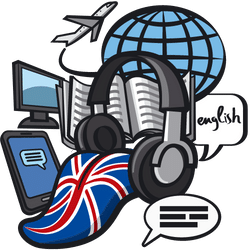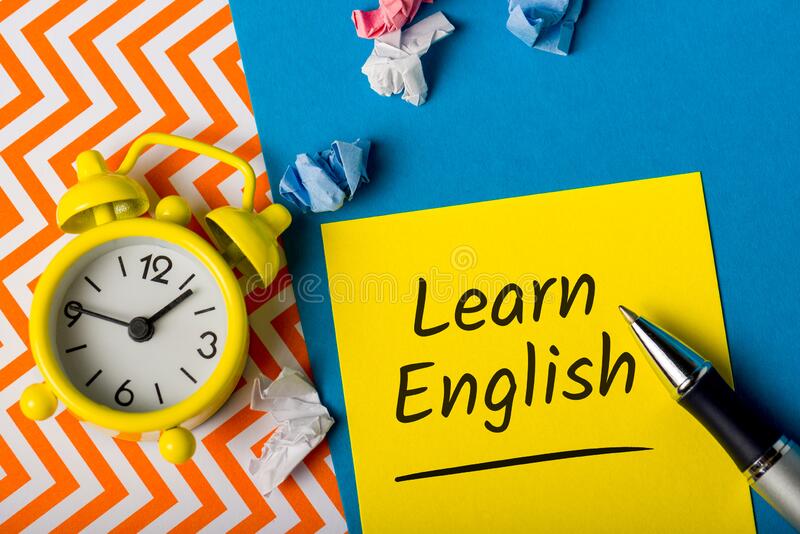There are many different ways that people go about learning English. Some people may prefer to study English in a classroom setting, while others may choose to self-study. However, there are a few key techniques that can be used to learn English effectively, no matter what learning method is chosen.
The first step to learning English effectively is to develop a good study habit. This means setting aside a specific time each day to study English, and making a commitment to stick to that schedule. It may be helpful to create a study plan, outlining what specific things will be studied on each day. This can help ensure that all important aspects of the language are covered, and that no time is wasted.
A good way to improve English proficiency is to use a variety of different materials. This could include textbooks, workbooks, audio recordings, video clips, and online resources. By using a variety of different materials, learners can expose themselves to different aspects of the language. This also helps to keep learning interesting and fun.
In addition, it is important to practise what has been learned as often as possible. This can be done by speaking with English speakers, reading English texts, and writing in English. practise makes perfect, and the more practice learners get, the better they will become at using the language.
Finally, one of the most important things to keep in mind when learning English is to stay motivated. This means setting realistic goals, and celebrating each achievement along the way. When learners feel motivated and positive about their learning, they will be more likely to succeed.
Setting Clear Goals and Objectives
If you want to learn English effectively, you need to set clear goals and objectives. This means knowing what you want to achieve and what you need to do to get there.
One way to set clear goals is to make a list of what you want to be able to do in English. This could include speaking fluently, reading and understanding texts, writing essays, or using English in a professional setting.
Once you have a list of goals, you can then break these down into smaller and more achievable objectives. For example, if your goal is to speak fluently, your objectives might be to learn the basics of English grammar, to be able to hold a basic conversation, and to be able to read and understand English texts.
To help you stay on track, it’s important to set deadlines for each objective. This will help you to stay focused and motivated.
The best way to learn English is to practise as much as possible. This means speaking with native English speakers, reading English texts, and writing essays.
It can also be helpful to use English learning tools such as flashcards, apps, or online courses.
Above all, be patient and don’t be afraid to make mistakes. With practise, you will soon see progress and be able to achieve your goals.
Developing a Study Plan
There are a number of different factors that can affect how effectively a person learns English. These factors can include the person’s native language, how much English they already know, their motivation, and their learning style. However, by following a few simple steps, anyone can develop a study plan that will help them learn English more effectively.
The first step is to identify your goals. What do you want to be able to do in English? Do you want to be able to read English newspapers and books? Do you want to be able to understand English TV shows and movies? Do you want to be able to speak English with native speakers? Once you have identified your goals, you can start to create a study plan that will help you achieve them.
The second step is to find a good English learning program that suits your needs. There are a number of different programs available, from traditional classroom-based courses to online programs, apps, and self-study materials. Choose a program that is right for you and that fits in with your lifestyle and learning style.
The third step is to create a schedule and stick to it. Set aside a specific time each day or week to study English and make sure to stick to it. This will help you make progress and avoid feeling overwhelmed.
The fourth step is to get feedback. Once you have started your English learning program, get feedback from a teacher or a friend about how you are doing. This will help you to identify any areas that you need to work on and will help you to progress more quickly.
The fifth step is to be patient. Learning English takes time and practice. Don’t get discouraged if you don’t see results immediately. Persevere and you will see progress over time.
Enhancing Listening Skills
There are many different ways to learn English effectively. One of the most important ways to improve your English skills is to improve your listening skills.
In order to improve your listening skills, it is important to first understand why it is important to improve them. One of the most important reasons to improve your listening skills is that it will help you to understand English better. This is because when you are able to listen to English more clearly, you will be able to understand what is being said more easily.
Another reason to improve your listening skills is because it will help you to improve your pronunciation. This is because when you are able to hear the different pronunciation patterns in English, you will be able to imitate them more easily.
Another reason to improve your listening skills is because it will help you to improve your fluency. This is because when you are able to understand English more easily, you will be able to speak more fluently.
There are many different ways that you can improve your listening skills. One of the best ways to improve your listening skills is to listen to English radio shows or podcasts. This is because when you are listening to real English conversations, you will be able to hear the different pronunciation patterns and the different ways that people speak English.
Another way to improve your listening skills is to watch English movies or television shows. This is because when you are watching real English conversations, you will be able to see the different pronunciation patterns and the different ways that people speak English.
Another way to improve your listening skills is to find a native English speaker to talk to. This is because when you are talking to a native English speaker, you will be able to hear the different pronunciation patterns and the different ways that people speak English.
Finally, another way to improve your listening skills is to use English language learning software. This is because when you are using English language learning software, you will be able to see the different pronunciation patterns and the different ways that people speak English.
Practicing Speaking Skills
Speaking English fluently is a goal for many learners. However, just practicing your reading and writing skills will not get you there. You also need to practice your speaking skills. Here are a few tips to help you do that:
1. Start with basic conversations
When you start practicing your speaking skills, start with basic conversations. This will help you get comfortable speaking English and make mistakes. Don’t worry if you make mistakes – everyone makes mistakes when they are learning a new language.
2. Use a language partner
A language partner is someone who you practice speaking with. They can help you improve your speaking skills and pronunciation. You can find a language partner online or in your local community.
3. Practice in front of a mirror
If you want to improve your pronunciation, practice in front of a mirror. This will help you see how you are pronouncing each word.
4. Record yourself
Recording yourself is a great way to improve your speaking skills. You can listen to the recording and see where you need to improve.
5. Use English practice websites
There are many websites that offer English practice exercises. These exercises can help you improve your speaking skills.
6. Attend an English class
Attending an English class is a great way to improve your speaking skills. The teacher can help you improve your pronunciation and grammar.
7. Talk to native English speakers
Talking to native English speakers is the best way to improve your speaking skills. They can help you with your pronunciation and grammar. Plus, you can learn more about American culture.
Expanding Vocabulary
There are a number of ways to effectively learn English vocabulary. One of the most important things to do is make a list of words that you want to learn and then come up with a plan for how you will learn them.
One way to learn vocabulary is to use flashcards. Flashcards are a great way to learn because you can use them to practice both recognition and recall. You can also use flashcards to review words that you have already learned.
Another way to learn vocabulary is to use a dictionary. A dictionary is a great resource because it provides you with the definition, pronunciation, and example sentences for each word. You can also use a dictionary to learn the meaning of words that you don’t know.
Another way to learn vocabulary is to use a thesaurus. A thesaurus is a great resource because it provides you with a list of synonyms for each word. This can be helpful for expanding your vocabulary and improving your writing.
Finally, another way to learn vocabulary is to read. Reading is a great way to learn because it allows you to see words used in context. It also allows you to learn new words from the words that are used in the text.
Improving Reading Comprehension
Reading comprehension is the ability to read a text and understand its meaning. A person with good reading comprehension should be able to understand the overall message of a text, as well as the finer details. This ability is important for students who want to do well in school, and for adults who want to be successful in their careers.
There are many ways to improve reading comprehension. One of the best ways is to read extensively. This means reading a variety of texts, from newspapers and magazines to fiction and nonfiction books. Reading different types of texts will help you develop a better understanding of the English language. It will also help you develop a better understanding of different topics and genres.
Another way to improve reading comprehension is to practice reading aloud. This will help you develop better pronunciation and fluency. It will also help you become more aware of the text’s overall meaning.
Finally, you can improve your reading comprehension by practicing reading comprehension questions. This will help you develop the skills you need to answer questions about a text. It will also help you develop a better understanding of the text’s overall meaning.
Utilizing Technology for Language Learning
With technology at our fingertips, there are countless ways to learn English effectively. From online programs and apps to videos and podcasts, there’s something for everyone. And, with so much technological innovation in language learning, it’s easier than ever to find the right tools to fit your needs and your learning style.
One of the best ways to learn English is to use technology to your advantage. Programs like Rosetta Stone and Duolingo make it easy to learn English on your own time, and there are countless videos and podcasts available to help you improve your language skills.
If you’re looking for a more structured learning experience, consider an online program or app. These programs often offer a variety of different exercises and activities to help you learn English, and they’re perfect for people who want to study on their own time.
If you’re more of a hands-on learner, consider using videos and podcasts to improve your language skills. These resources are great for people who want to learn more about English culture and the language itself. Plus, they’re perfect for people who want to improve their listening skills.
No matter what your learning style is, there’s a technology-based resource that can help you learn English effectively. So, don’t hesitate to use technology to your advantage and improve your language skills today.
Engaging in Immersion Activities
There are many different ways to learn English, but one of the most effective is through immersion activities. Immersion activities involve using English in real-life situations as much as possible. This can be done by living in an English-speaking country, attending an English-speaking school, or using English as much as possible in your everyday life.
Living in an English-speaking country is the best way to learn English. When you are surrounded by English speakers, you are forced to use English in order to communicate. This will help you to learn the language quickly and effectively. In addition, you will be able to practice your English with native speakers, which will improve your pronunciation and fluency.
Attending an English-speaking school is another great way to learn English. Schools that teach in English are found all over the world, so there is no need to move to an English-speaking country. These schools are especially beneficial for students who want to focus on their academic studies. In addition, schools that teach in English often have native English speakers as teachers, which can help improve your language skills.
Finally, using English as much as possible in your everyday life is a great way to improve your language skills. This can be done by watching English movies and TV shows, reading English books, and using English websites. In addition, you can practice your English by talking to English-speaking friends or by attending an English-speaking club or group.
Incorporating Language Learning Strategies
There is no one-size-fits-all answer to the question of how to learn English effectively. However, incorporating certain language learning strategies can help make the process more successful.
One strategy is to make use of a variety of resources. This could include watching English-language films and TV shows, reading English-language newspapers and magazines, and listening to English-language podcasts. In addition, practice speaking the language with native speakers as often as possible. This can be done through language exchanges, conversation groups, or online chat rooms.
Another key strategy is to focus on vocabulary. Learning new words is essential for improving language comprehension and fluency. A good way to learn new words is to come up with mnemonic devices to help remember them. For instance, the word ‘scissors’ can be remembered by thinking of ‘scissor’ as a verb meaning ‘to cut’.
It is also important to be consistent in one’s language learning efforts. This means setting aside a specific time each day or week to study English. In addition, it is helpful to make use of flashcards and other study tools.
Finally, it is important to be patient and not get discouraged. Learning a new language takes time and effort, but with patience and perseverance, it is possible to achieve fluency.
Making Use of Authentic Materials
learners can take advantage of a variety of authentic materials to improve their English skills. These materials can include television shows, movies, music, newspapers, and magazines. By using authentic materials, learners can improve their listening, speaking, reading, and writing skills.
One of the best ways to use authentic materials to improve listening skills is to watch television shows and movies in English. The best way to do this is to find English-language channels or websites that air or post these shows and movies. Watching English-language films and TV shows can help learners improve their listening skills by exposing them to natural English accents and conversations.
Another great way to use authentic materials to improve speaking skills is to listen to music in English. Again, the best way to do this is to find English-language music stations or websites. Listening to English-language music can help learners improve their pronunciation and learn new vocabulary.
Reading authentic materials is a great way to improve reading skills. One way to do this is to read English-language newspapers and magazines. These materials contain interesting articles that can help learners learn new vocabulary and improve their reading comprehension skills.
Finally, writing skills can also be improved by using authentic materials. One way to do this is to write responses to articles that are read in English-language newspapers and magazines. This can help learners improve their writing skills by forcing them to think critically and express their thoughts in a clear and concise manner.



